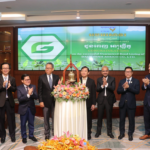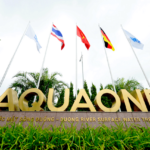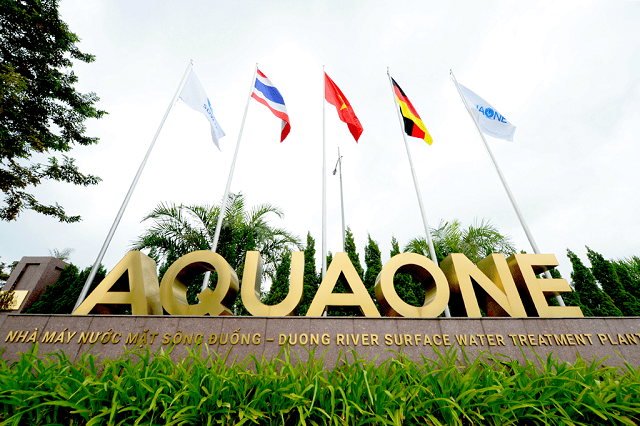The 2013 Land Law differentiates land access rights between “individuals within the country” and “Vietnamese residing abroad”. However, Article 4(3) of the Land Law (amended) stipulates that Vietnamese citizens residing abroad have the same rights related to land as Vietnamese citizens within the country.
According to experts, expanding land use rights for Vietnamese citizens residing abroad, who are Vietnamese citizens, including regulations on land use rights, allows them to directly participate in real estate transactions within the country… avoiding the previous inconvenience where Vietnamese citizens residing abroad had to rely on relatives within the country to conduct transfer transactions, which has led to several disputes arising from the person standing as the name receiver and the management of land use rights.

The amended Land Law will attract more capital inflows from overseas Vietnamese. (Illustrative image: Cong Hieu).
At a seminar on housing for foreigners and overseas Vietnamese in 2023, Mr. Peter Hong, Deputy Permanent Chairman of the Vietnam Business Association of Overseas Vietnamese, said that many overseas Vietnamese want to settle and invest back in the country but do not know how to own real estate.
According to him, there are about 5.5 million Vietnamese people living abroad and over 1 million F2, F3 generations with fathers, mothers, or grandparents who are Vietnamese. Of these, more than 20% are approaching retirement age and most of them want to return to their homeland to settle, invest, and connect with their roots in their final years.
A survey by the Ho Chi Minh City Real Estate Club (HREC) also shows that about 3 million Vietnamese overseas have the demand to own real estate when returning to Vietnam, with most of them choosing Ho Chi Minh City.
According to the Vietnam Business Association of Overseas Vietnamese, there are currently 600,000 – 700,000 overseas Vietnamese who are entrepreneurs and intellectuals with a high level of education (accounting for 10 – 12% of the Vietnamese community abroad).
Among them, many people want to return to their homeland to invest, do business, or live, so the demand for buying houses in Vietnam is very high. When the policy is more open, remittances can be used more in the real estate market. Currently, many overseas Vietnamese want to settle in Vietnam but face difficulties in buying houses, not knowing where to buy, prices, and ownership rights.
Real estate legal expert Nguyen Van Dinh commented that this provision is consistent with the draft amended Land Law. Accordingly, Vietnamese citizens residing abroad who still hold Vietnamese citizenship have the right to do business in real estate, to buy, rent, lease-purchase houses, and construction works like Vietnamese citizens within the country.
This will make it easier for Vietnamese citizens residing abroad to own real estate within the country, contributing to the development of the real estate market. Mr. Dinh analyzed.
Previously, to buy real estate within the country, many overseas Vietnamese had to rely on relatives to be named owners, resulting in problems such as lawsuits and disputes due to lack of legal transparency. This amendment in the Law on Real Estate Business has created equality between individuals within the country and overseas Vietnamese in terms of real estate investment and business.

With additional capital from overseas Vietnamese, the real estate market will have more positive signals.
Assessing the demand for housing in Vietnam of overseas Vietnamese, Mr. Vo Huynh Tuan Kiet, Director of Business at CBRE Vietnam, said that the demand for housing from remittances is very high. In nearly 10 years, with nearly 5,000 transactions performed by CBRE, up to 45% belong to foreign customers and overseas Vietnamese.
“
During the past time, the supply of high-end housing accounted for a large proportion. If conditions permit foreigners to own, it will strongly boost this segment. Not to mention, this is also a solution to attract good labor, attract talents. When skilled workers come to work in Vietnam and have long-term bonds with Vietnam, they will surely have demand for accommodation and food, thereby promoting real estate investment
”, Mr. Kiet commented.
Economic expert, TS. Dinh The Hien also assessed that previously, Vietnamese people residing abroad but who do not have Vietnamese citizenship would not have the same rights as Vietnamese citizens. However, the new provisions in the amended Land Law have created conditions for a group of overseas Vietnamese to invest and buy houses.
According to Mr. Hien, the current law allows overseas Vietnamese to buy houses in Vietnam. But the difficulty lies in the complicated procedures and documents to prove Vietnamese origin, which has frustrated overseas Vietnamese.
Furthermore, although the provision allows overseas Vietnamese to buy real estate in Vietnam, many have to authorize their relatives to be the owners. Therefore, Mr. Hien commented that the amendments in the Land Law and the previous laws on Real Estate Business, and Housing (amended) have created equality between individuals within the country and Vietnamese overseas in terms of real estate investment and business.
Thus, the real estate market will have additional demand from overseas Vietnamese, providing an outlet for the current high-end housing surplus. They will invest in building houses, construction projects for sale, for rent, for lease-purchase; invest in technical infrastructure construction in real estate projects for transfer and rental.










